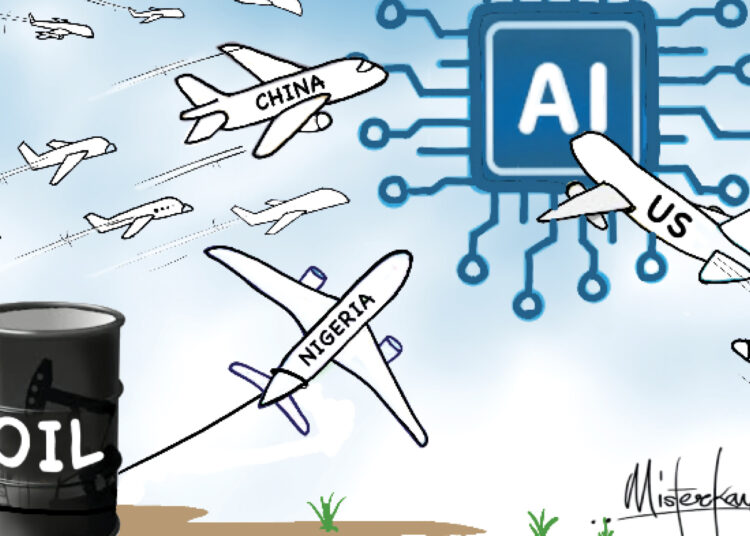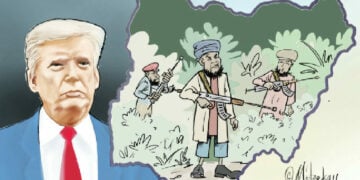The Israel-Palestine-Hamas conflict remains one of the most complex and enduring disputes in modern history. It is deeply rooted in centuries of territorial, political, and religious disagreements. While the origins date back to ancient times, its modern dimensions emerged during the 20th century due to competing national movements and the fallout from colonial policies. This conflict is not merely a local or regional issue but one with profound global implications, influencing international relations, shaping geopolitical strategies, and stirring intense emotions across continents. Central themes include the contentious debates over land, sovereignty, and the fundamental rights of those affected by the conflict.
The most recent escalation of violence, which began on October 7, 2023, has once again underscored the conflict’s immense human and material cost. Over the past 15 months, at least 46,707 people in Gaza have been killed, including approximately 18,000 children. Many analysts and rights groups suggest the actual death toll may be even higher. Beyond the loss of life, the conflict has displaced more than a million people in Gaza, leaving the region’s infrastructure in ruins. Centuries of cultural and historical heritage have been destroyed, further eroding the identity of affected communities and diminishing the global cultural landscape.
The ripple effects of this conflict extend far beyond Gaza’s borders. Neighbouring regions, such as Iran, Lebanon, and Yemen, have felt its impact, with Hezbollah’s involvement leading to heightened tensions along the Israel-Lebanon border. Clashes in this area have resulted in dozens of casualties while the broader geopolitical rivalry between Iran and Israel continues to escalate, raising fears of a larger regional conflagration. The interconnected nature of Middle Eastern geopolitics often ensures that unrest in one area triggers broader instability, creating a complex and self-reinforcing cycle of violence that is challenging to break.
The Ceasefire Agreement
Amid this backdrop, a ceasefire agreement between Israel and Hamas has provided a momentary pause in hostilities. Under this agreement, Hamas released 33 Israeli hostages, including women, elderly individuals, and two children from the Bibas family. In exchange, Israel has freed hundreds of Palestinian prisoners, including those serving life sentences. The initial phase of the deal also includes Israel’s partial withdrawal of forces from the Netzarim corridor in Gaza while maintaining a security buffer zone along Gaza’s perimeter. This agreement, though fragile, marks the first significant pause in fighting since November 2023.
The second phase of the ceasefire agreement, set to begin 16 days after its initial implementation, involves the release of remaining Israeli male hostages and captured soldiers. During this phase, Israel plans to redeploy its forces along Gaza’s border with Egypt, specifically in the Philadelphi corridor, while evacuating the Rafah Crossing. These steps represent a strategic shift, as maintaining control over these areas has been a cornerstone of Israeli national security policy. However, the long-term success of this agreement remains uncertain. Any failure to meet the terms of the ceasefire or renewed hostilities could quickly unravel these fragile arrangements.
Despite the temporary relief the ceasefire provides, such agreements often fail to address the root causes of violence. Fundamental issues such as military occupation, economic blockades, and widespread humanitarian crises frequently remain unresolved, perpetuating the cycle of violence. Both parties must take genuine steps to address these systemic issues to move toward sustainable peace. International involvement, including enforcement mechanisms such as United Nations observer missions, is critical to ensuring the success of ceasefire agreements. Historical examples, such as the UN’s role in monitoring post-conflict arrangements in Cyprus and the Balkans, highlight the potential effectiveness of sustained international oversight.
The global community has played a crucial role in mediating the conflict, with nations and organizations offering varying support and criticism. Diplomatic efforts to broker the recent ceasefire involved multiple stakeholders, including Egypt and Qatar, emphasizing the importance of multilateral cooperation. However, the conflict has also deepened global geopolitical tensions. The United States, for example, provides over $3.8 billion in annual military aid to Israel, while Iran continues to offer financial and military support to Hamas. This dynamic mirrors the proxy conflicts of the Cold War, where global superpowers supported opposing sides to advance their strategic interests, often at the expense of local populations.
Lessons Learned
Several lessons can be drawn from this ongoing conflict for Nigeria. One key takeaway is the importance of military strength and technological advancement. Israel’s Iron Dome missile defence system, which intercepted over 90% of incoming rockets during the conflict, underscores the strategic advantage of investing in self-reliant defence systems. Nigeria must move beyond rhetorical proclamations of strength and focus on tangible investments in defence capabilities to secure its sovereignty and influence global affairs effectively.
Strategic alliances also play a vital role in shaping the dynamics of conflicts. Israel’s close relationships with allies such as the United States and the United Kingdom provided it with significant resources and diplomatic leverage. In contrast, Palestine has relied on allies like Iran, Lebanon, and Syria. These alliances supply material support and shape international narratives and outcomes. For instance, the U.S. has frequently used its veto power in the UN Security Council to block resolutions critical of Israel. Nigeria must prioritize building and maintaining strategic partnerships to navigate the complexities of global geopolitics.
The conflict also underscores the dangers of strategic miscalculations. Hamas’s potential underestimation of Israel’s military capabilities resulted in devastating losses, including the destruction of critical infrastructure and the deaths of senior officials. This is a stark reminder that nations must avoid engaging in conflicts or making threats without adequate preparation. ECOWAS’s restraint in preventing armed conflicts with member states experiencing military coups is a commendable example of calculated diplomacy.
Balancing domestic and international priorities is another important lesson. Domestic political pressures, including public demand for security, influenced Israel’s military escalation. Nigerian leaders must strengthen the relationship between public opinion, public demands, and policymaking to ensure their actions align with long-term national interests.
History demonstrates that all conflicts ultimately end through negotiation. Diplomacy and dialogue should be prioritized over warfare as the primary means of resolving disputes. The human and economic costs of war are too significant to ignore. For instance, the Good Friday Agreement in Northern Ireland highlights the power of sustained dialogue in resolving deeply entrenched conflicts. With Nigeria facing challenges such as insurgency, banditry, and calls for secession, the importance of negotiations and dialogue as tools for conflict resolution cannot be overstated.
The role of technology in modern warfare is undeniable, but it cannot replace robust human intelligence. Failures like the inability to anticipate the scale of the October 7th attacks underscore the need for effective intelligence systems. Nigeria must invest in developing intelligence structures that are both robust and adaptive to the nation’s security challenges.
Democratic governance is another critical factor in promoting stability and reducing the risk of conflict.
Authoritarian regimes often exacerbate tensions through repression and electoral manipulation, as seen in Sudan and Ethiopia. Nigeria must resist authoritarian tendencies and prioritize democratic principles to maintain peace and stability.
Window For Broader Peace
The recent ceasefire in the Middle East, fragile as it is, opens a window for broader peace initiatives, including the potential revival of the Abraham Accord. This development could usher in a new era of economic growth and regional cooperation driven by Saudi capital and Israeli technology. The prosperity seen in the UAE could serve as a model for extending development to Gaza, Lebanon, and other parts of the region.
The Israel-Palestine conflict serves as a stark reminder of the challenges in achieving lasting peace in deeply divided societies. The global community has a moral and strategic responsibility to promote dialogue, ensure accountability, and support efforts toward lasting peace. These lessons are not confined to the Middle East but apply to all regions grappling with similar challenges. By prioritizing peace, humanity can work toward a brighter, more equitable future for all.





